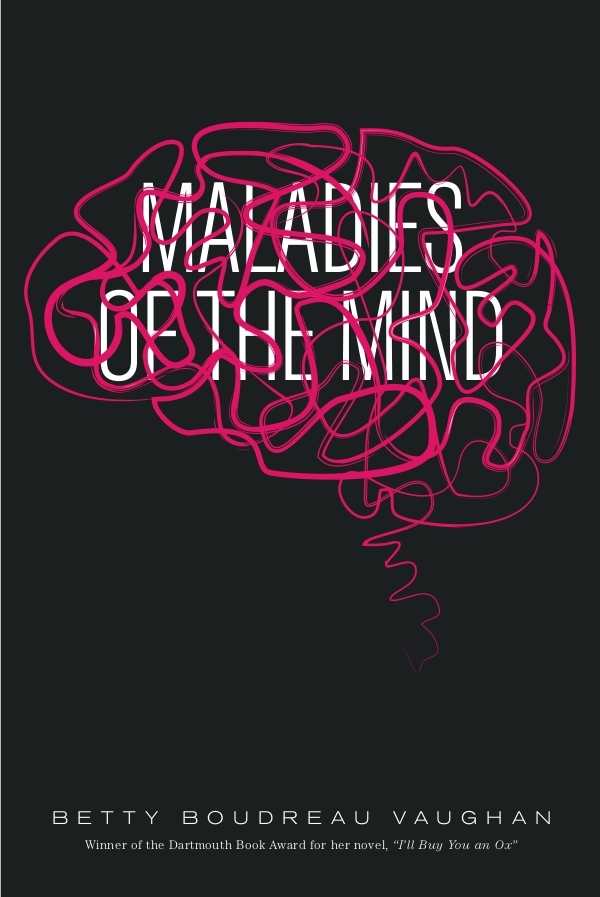
Maladies of the Mind
This novel’s exploration of the ways we touch each other’s lives makes a wonderful story that just about any reader will enjoy.
“The life you save may be your own,” was an advertising slogan written in the 1930s to slow down fast drivers. Yet, the phrase strikes a chord today because it means much more. Sooner or later, everyone seeks redemption and, sometimes, the road to it begins by helping someone else. This idea is the centerpiece of Betty Boudreau Vaughan’s novel, Maladies of the Mind.
The story opens as Zoé LeBlanc, an administrative assistant to a chief medical examiner, visits a crime scene with her boss. The victim, a young woman named Cheska Murphy, leaves a cryptic message in her suicide note: “Unless you can read by touch, what will you really know?” The suicide affects Zoé, who quits her job and becomes an the office administrator at Saint Cecilia’s Church, a job that Cheska once held. While her best friend, Estelle, thinks she’s crazy, Zoé digs into Cheska’s past, only to discover that her search may lead back to herself.
While Maladies of the Mind seems like a mystery, the story is really a character study. From her French background to her persistent curiosity, Zoé is a fresh and relatable, but imperfect, character. For some authors, that might be enough, but Vaughan gives almost every character the same attention. Even secondary characters like Harry and Mani, homeless people at Saint Cecilia’s who interact with Zoé, have an individual depth and a unique voice.
Yet, these characters sometimes weigh down the story as Vaughan relies heavily on dialogue between them to propel the plot. This is unusual as Vaughan can clearly wield the other tools of her craft into exquisite storytelling. For instance, Vaughan has Zoé describe Father Grace, a blind priest at Saint Cecilia’s, handling a gift as follows: “With the tips of his fingers, he explored every crease, every indentation of the statue he was examining, allowing me a superb appreciation of the tactile agility of the hands of the blind, how touch is affected when sight is deleted.”
But dialogue is about connection, which ultimately fits with the themes of Maladies of the Mind. The novel’s exploration of the ways we touch each other’s lives makes a wonderful story that just about any reader will enjoy. It shows that through connection—whether it is to family, friends, colleagues, or even people we meet in death—the life we save must be none other than our own.
Reviewed by
Katerie Prior
Disclosure: This article is not an endorsement, but a review. The publisher of this book provided free copies of the book and paid a small fee to have their book reviewed by a professional reviewer. Foreword Reviews and Clarion Reviews make no guarantee that the publisher will receive a positive review. Foreword Magazine, Inc. is disclosing this in accordance with the Federal Trade Commission’s 16 CFR, Part 255.
